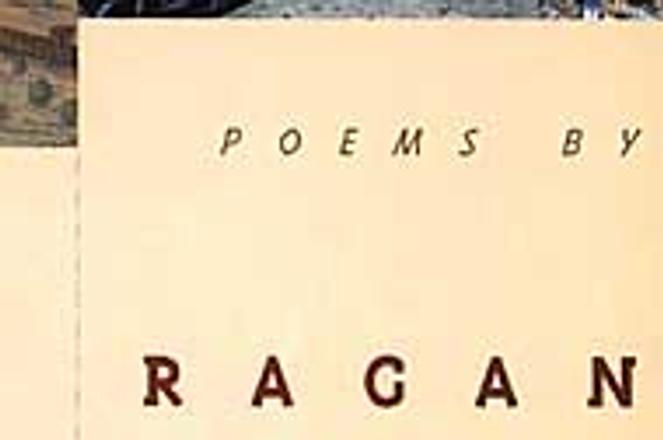photo: Courtesy of James Ragan
"I BECAME aware of the role I have to play as a poet on the world stage when reading poetry with Bob Dylan to Soviet president Mikhail Gorbachev in 1985. At that moment I just didn't feel local any more," says James Ragan, an American poet of Slovak origin, of the experience that changed his life.
Ragan, 58, had been asked to read in front of 8,000 people at Moscow's first International Poetry Forum. Invited for his interest in global issues such as racism, oppression and religion, he joined other internationally known poets such as the American Robert Bly, the Russian Yevgeny Yevtushenko, and Irish Nobel prize winner Seamus Heaney.
The experience, he says, strengthened his belief that he could make a contribution to world affairs through his art.
Further readings followed, with Ragan participating in poetry sessions from China to America. In 1992, he and American dramatist Arthur Miller were invited to read in Czechoslovakia by President Václav Havel. Now, after a recent reading at New York's Carnegie Hall, Ragan returns to his parents' homeland to read at the Ján Smrek International Literary Festival in Bratislava on June 2.
While Ragan's parents came from the territory of today's eastern Slovakia, the son expresses mixed feelings about returning to what remains following the split of Czechoslovakia in 1993.
"My traditions are Czechoslovak," says Ragan, a Slovak American equally familiar with both Czech and Slovak cultures and literary forms. "We are proud of being Slovak, but when my parents left the country in 1929, it was then the Czechoslovak Republic. It's such a shame that the country fell apart."
HAVEL and Ragan in 1992.photo: Courtesy of James Ragan
Born in 1944 to a pair of Slovak émigrés on the outskirts of Pittsburgh, James Ragan was one of 13 children. His parents, former farmers, had left Czechoslovakia during the 1930s depression years to become steelworkers in America. They preserved Slovak traditions in the family and taught their children the language.
"It took great courage to come to America," Ragan says. "I inherited my parents' wanderlust, and I've always wanted to know my roots. When my parents later joined me on my journeys to Slovakia, we used to travel from Košice to Bratislava with a wonderful bottle of Slovak wine. This beautiful Slovak landscape was my own private library."
Ragan is married to a Slovak American, and the couple's three children also speak Slovak. While his love of English led him to do a doctorate in English literature, his Slovak cultural background and the rhythm of his native language define both the melody and topics of his poetry.
"My poetry is known for its musicality. And that's because of my Slovak origin. I love Slovak music and the language," he says.
Ragan's first poetic coming to Czechoslovakia during communism was a rocky one. His book of poetry In The Talking Hours (1979) was banned because of a poem dedicated to Ján Palach, a student who publicly burned himself to death in protest at the invasion of Czechoslovakia by Soviet and Warsaw Pact troops in 1968. After the ban, Ragan was required to report to police stations whenever he traveled away from the eastern Slovak town of Humenné that his parents came from.
He returned to Czechoslovakia in 1992 after meeting President Havel at the University of California in Los Angeles, where Havel had been awarded an honorary doctorate. As many others had done, Ragan accepted Havel's invitation to help rebuild the country after communism.
RAGAN is back June 1-6.photo: Courtesy of James Ragan
"I know Havel as a poet and a professional. I spent a couple of inspiring months at his home in Prague. He gave the country the moral centre it had lost. We should have trusted him, and not split up because of nationalism," says Ragan.
Since 1992 he has been volunteer teaching at Charles University in Prague every June, and visiting Slovakia regularly. In 2000 he served as president of the international jury at a film festival organised annually in the western Slovak town of Treneianske Teplice.
In America Ragan leads the Professional Writers' Programme at USC. He has also written dramas and screenplays, several of which have won Emmy and Oscar awards.
He has also received numerous awards for his four books of poetry (In Talking hours, 1979, 2000; Womb-Weary, 1990; The Hunger Wall, 1995; and Lusions, 1997). These days he is working on his fifth volume, The World Shouldering I. His poetry has been translated into 12 Asian and European languages.
What: Ján Smrek International Literary Festival.
Who: James Ragan (USA), John F. Deane (Ireland), Ivan Klíma (Czech Republic), Asher Reich (Israel), Richard Pietrass (Germany), Veno Taufer (Slovenia), Sibila Petlevski (Croatia), Thor Vilhjámsson (Island).
When: June 1-6.
Where:
Bratislava - V Klub, Zichyho palác, Eeské centrum.
Nitra - Mestská knižnica, Divadlo Andreja Bagara.
Trnava - Trnavské divadlo.
For more information call Slovak P.E.N. centre in Bratislava on Laurinská 2.
Tel: 02/5443-4117.
Author: Mirna Šolić


